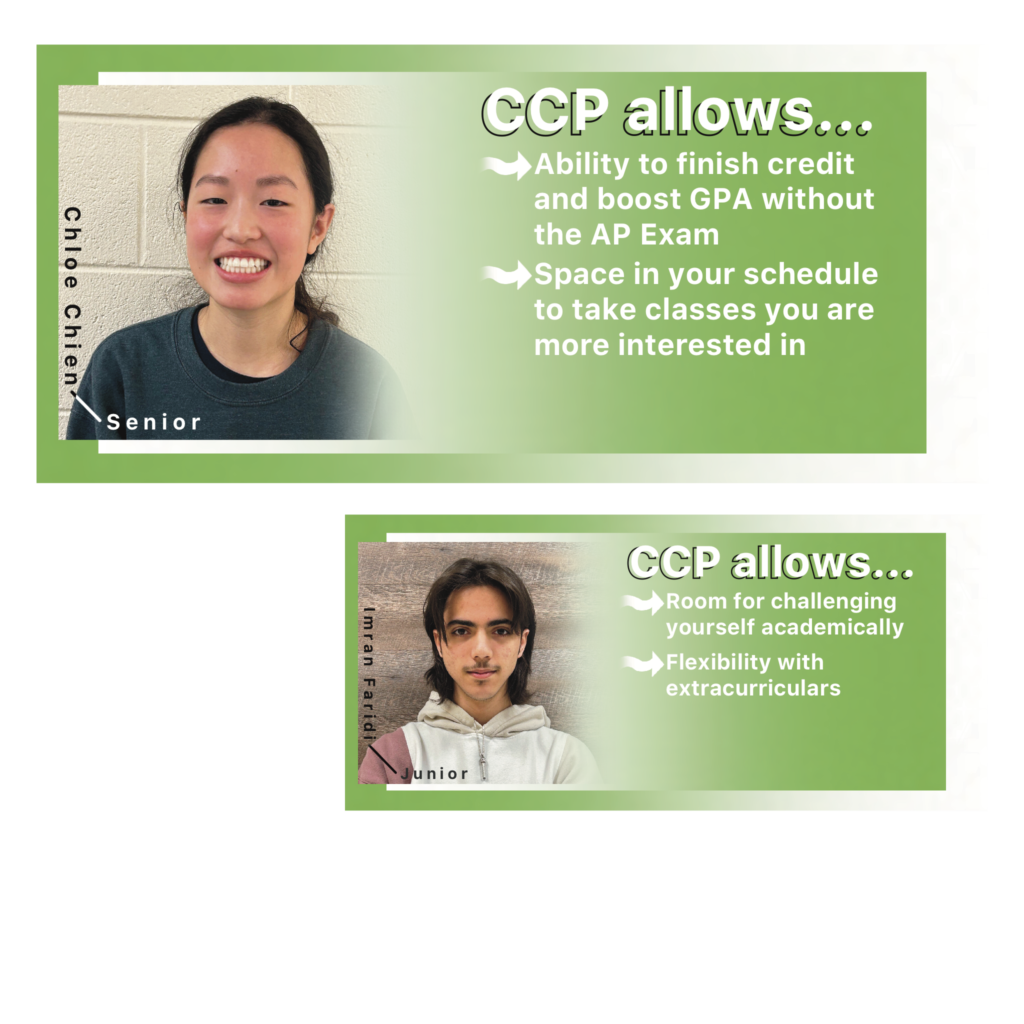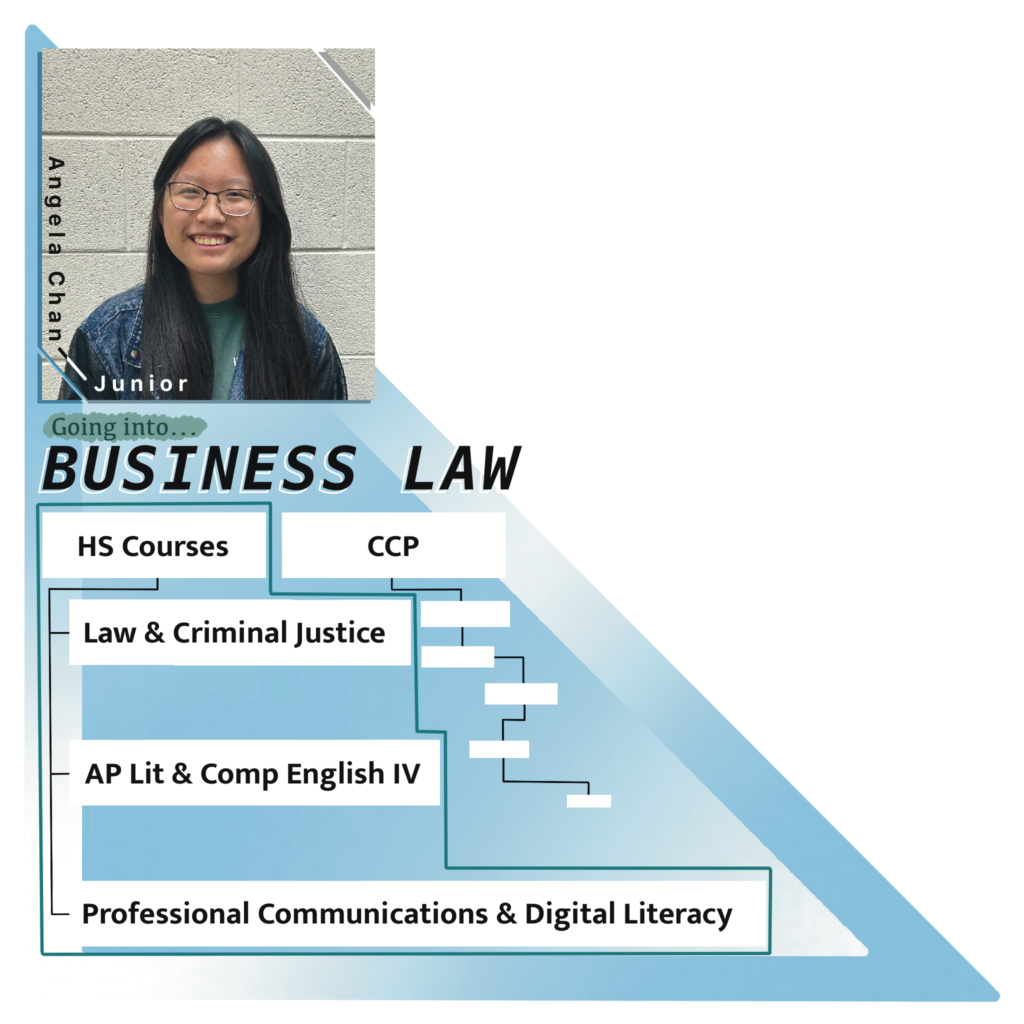MHS students take advantage of College Credit Plus Program

Elina Bishoyi | The Chronicle
Some Mason High school (MHS) students are earning credit where credit is due.
Numerous MHS students opt for taking classes over the summer and school year through the College Credit Plus (CCP) program. CCP courses allow students to acquire college credits in high school, and the credits earned transfer to colleges that accept them.
Colleges like Sinclair Community College, University of Cincinnati (UC), and The Ohio State University (OSU) offer CCP classes to high school students. Students often have the option of taking the courses online or asynchronously, unlike in-person education at high school.
Junior Imran Faridi said that he found CCP courses to be a beneficial alternative to taking classes in school, as they provided him the opportunity to further his education in a college-level environment instead of a high school classroom.
“Junior year, I realized I wanted to push myself more. I wanted to take harder classes and get a higher GPA for college, especially on that 5.0 scale,” Faridi said. “ It allows students to take the extra step without having to go crazy.”
Along with the benefits of a higher GPA, Faridi said CCP courses help him to effectively manage his schedule. With his time consumed by extracurriculars, he said that CCP gave him the option to lighten his workload during the regular school year.
“The biggest factor [in choosing CCP] I would say is fencing. I train around 30 hours a week so it takes up a lot of my time,” Faridi said. “I wanted to do as much as I could to alleviate some stress. Taking a couple classes over the summer is way more manageable because it allowed me to have two extra bells.”
Senior Chloe Chien has taken both core classes and electives through Sinclair Community College and UC. Chien took Government, English and Composition I and II, and Medical Terminology.
“[CCP] felt easier,” said Chien. “If I want to finish [credits] but don’t want to take the AP exam, it does such wonders to my GPA.”
A common dilemma for juniors during the scheduling season is the choice between taking CCP English IV and AP Literature. English IV, a non-honors class, offers up to 4.0 credits while taking an English course through the CCP program offers students up to 5.0 credits upon completion.
Junior Angela Chan said she wants to pursue business law, a career that demands a background in English. Chan said she believes her desired career requires a thorough background and education in English, which can only be gained from a high school curriculum.
“Law definitely requires reading and writing skills,” said Chan. “I think it’s better to take the class with a teacher who can probably teach you better than taking it through a CCP course.”
Although Chan decided not to replace her senior year English course with a CCP course due to her preference for in-person instruction, she acknowledged the benefits that make it a popular option for students.
“It really just depends on what major you want to go into and what classes actually are specifically beneficial for you to CCP,” Chan said. “ If you’re going to major in something that would make you take the class again in college, it might not be the smartest thing to do.”
On the other hand, Chien said she is looking to pursue a career in STEM, a path that does not require as much of a thorough background in English or Government compared to law.
“[If you want to enter] a STEM field you want to get the credit, so you take more STEM classes,” Chien said. “That freed up my schedule to take the actual classes because English and Government aren’t that important [for me].”
AP Government teacher Maria Mueller said she understands why students may choose to take CCP courses, but prefers to have students in the classroom. The human interaction between peers is different in an online college-level classroom compared to a high school class.
“The computer takes away that human connection, and to me, that takes away a bit of the application concept,” Mueller said. “The essence of democracy is interacting with your fellow citizens. In a classroom, you can have meaningful discourse with your peers, as you prepare to engage [with] the rest of the world.”
Because students have the option to learn asynchronously, they do not have to interact with their professor to complete the course. Mueller said she believes that the high school conditions allow students to have a one-of-a-kind type of education that is drastically different from college.
“While you’re in high school, those are your greatest opportunities to have rich learning experiences,” Mueller said. “The [CCP] classroom is like mass production: you’re one of many. I know my students and therefore the learning experience is hopefully more meaningful.”
Mueller said she believes students retain more information in classroom environments where the teachers can have direct connections with their students.

“It’s about priorities,” Mueller said. “Is that number [GPA] important or is the learning experience and retention of the content important? People need to make those choices for themselves.”
Although the GPA boost is a significant incentive for students to choose to take CCP courses, Mueller said she believes students should also take other factors into consideration.
“I like to think that students know that, whatever their GPA is, they are more than a number,” Mueller said. “I hope that students are making a fully reflective decision where they are pondering [taking CCP] and not just putting themselves on a path because they think that’s what they are supposed to do.”
Infographic by Becca Hunter
